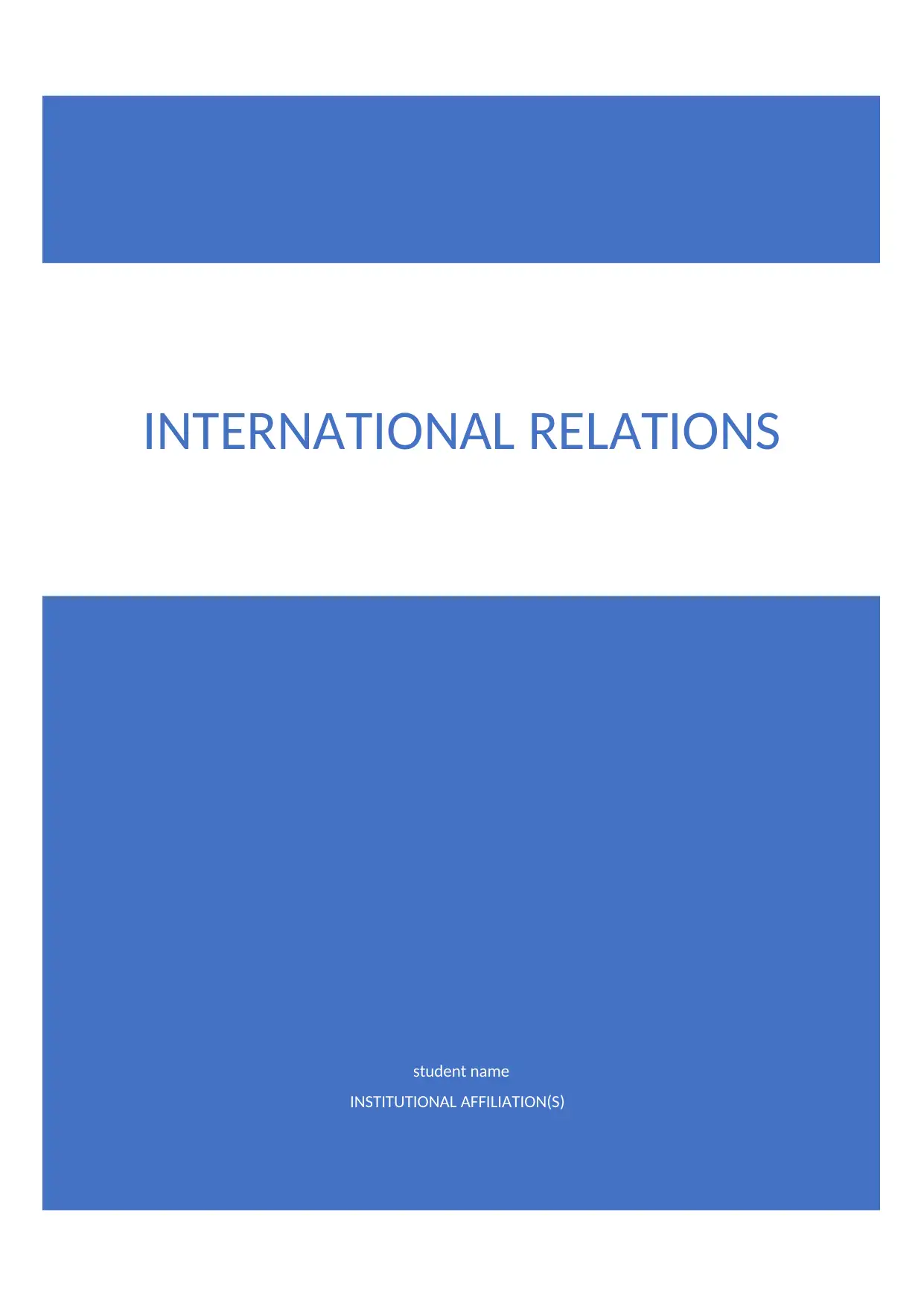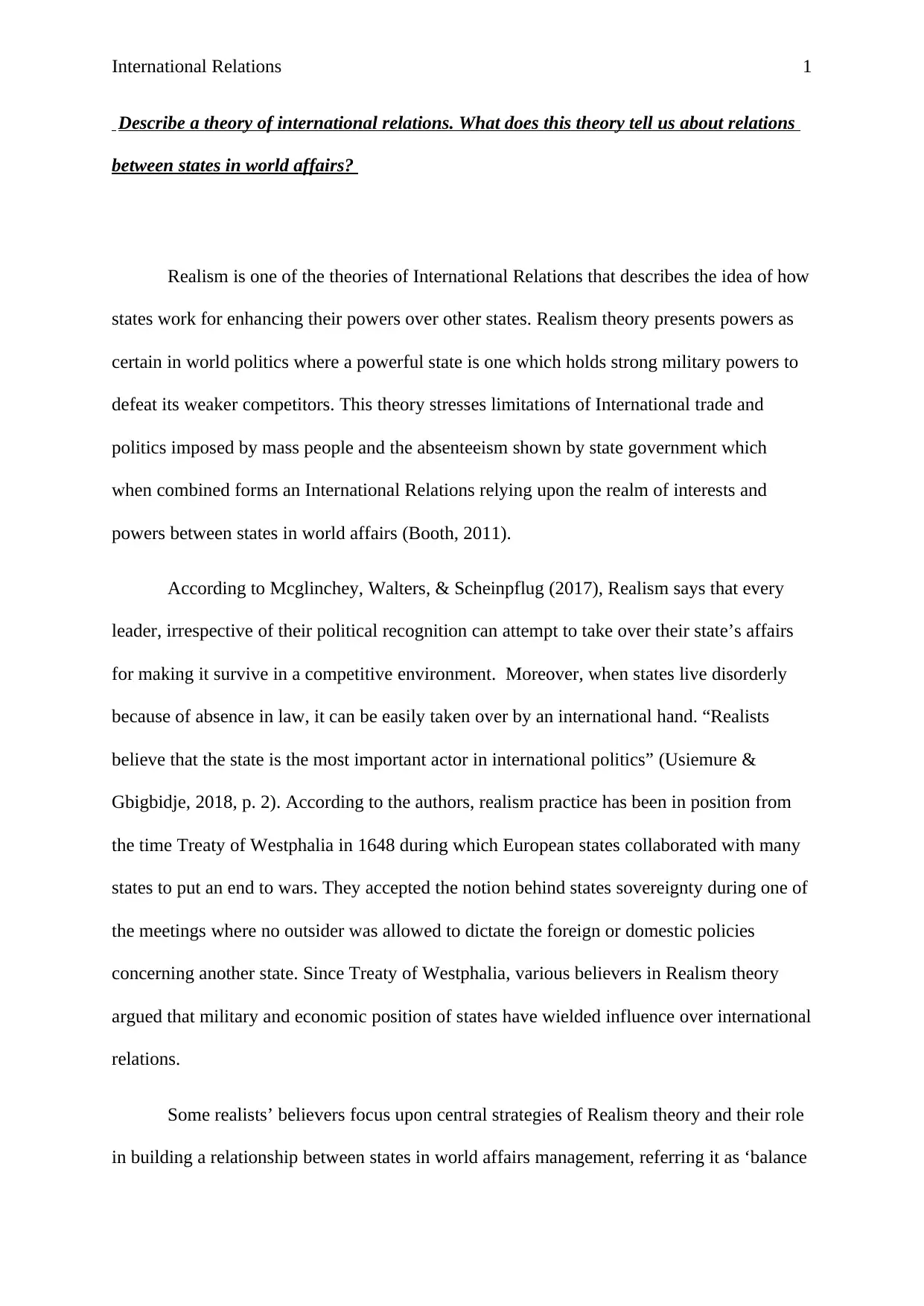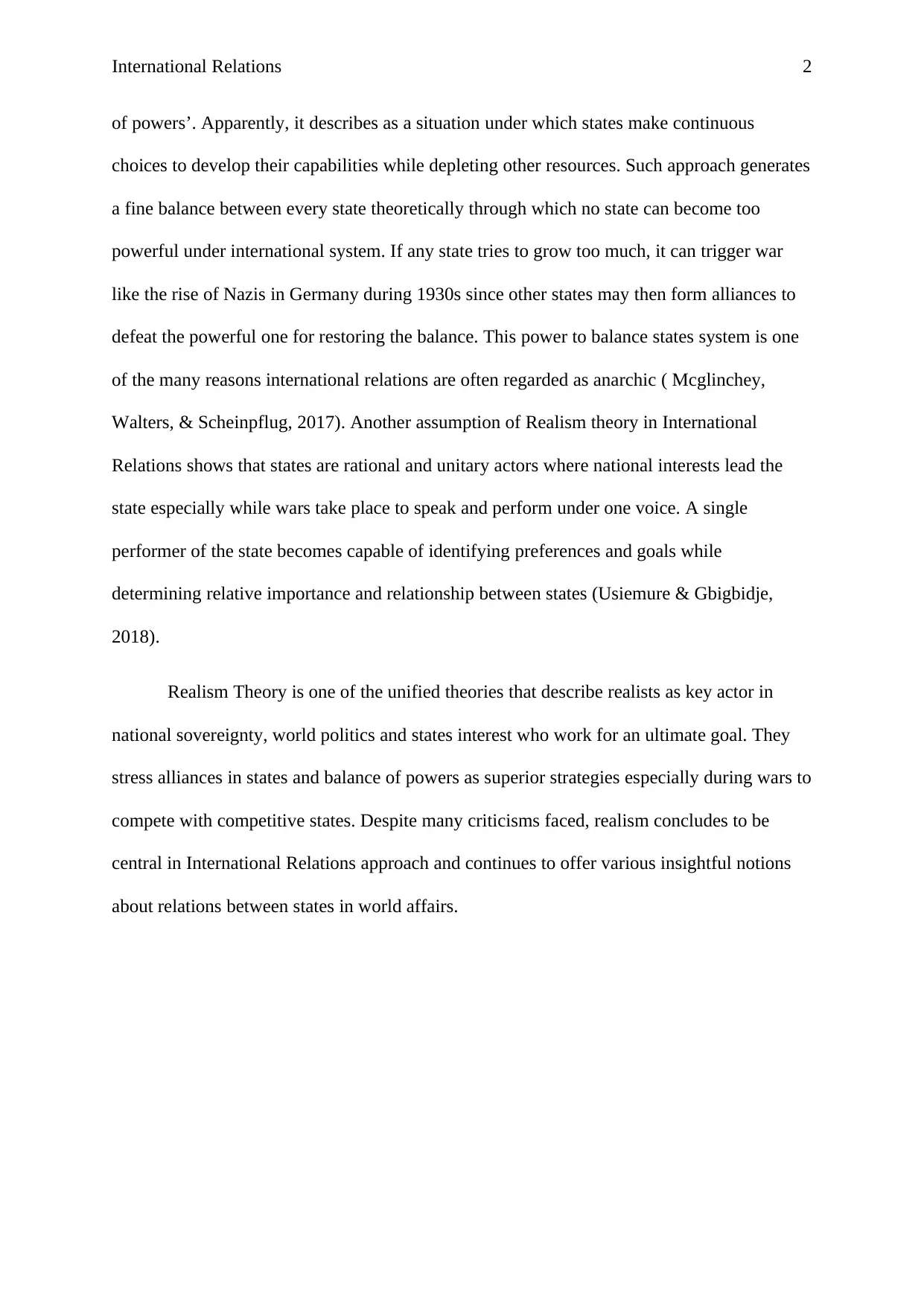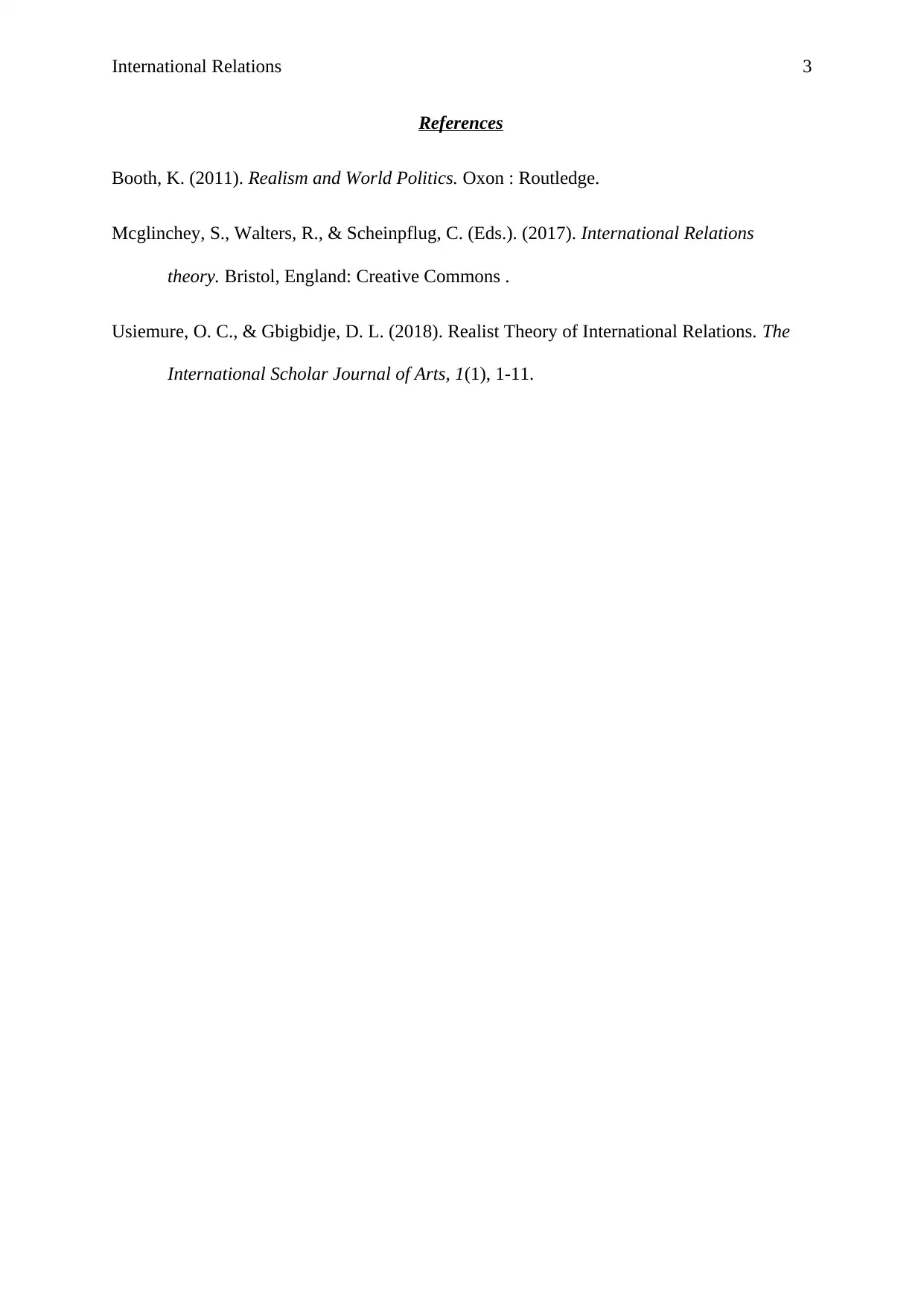International Relations: Realism Theory on State Powers and Relations
VerifiedAdded on 2022/12/27
|4
|688
|33
Essay
AI Summary
This essay delves into the theory of Realism within the field of International Relations, outlining its core principles and applications. Realism posits that states are the primary actors in international politics, driven by a pursuit of power and self-interest to ensure survival in an anarchic world. The essay examines the concept of state sovereignty, the balance of power, and the rational, unitary nature of states, as central tenets of Realism. It highlights how realists view international relations as a competitive arena, where states continuously strive to enhance their capabilities, often through military and economic means. The essay also references the Treaty of Westphalia as a foundational event in the development of Realist thought. By analyzing the perspectives of key scholars, the essay concludes that Realism remains a significant framework for understanding state interactions and the dynamics of world affairs, despite facing various criticisms. This theory emphasizes the importance of alliances and strategic maneuvers, especially during conflicts, to maintain stability and security within the international system.
1 out of 4










![[object Object]](/_next/static/media/star-bottom.7253800d.svg)